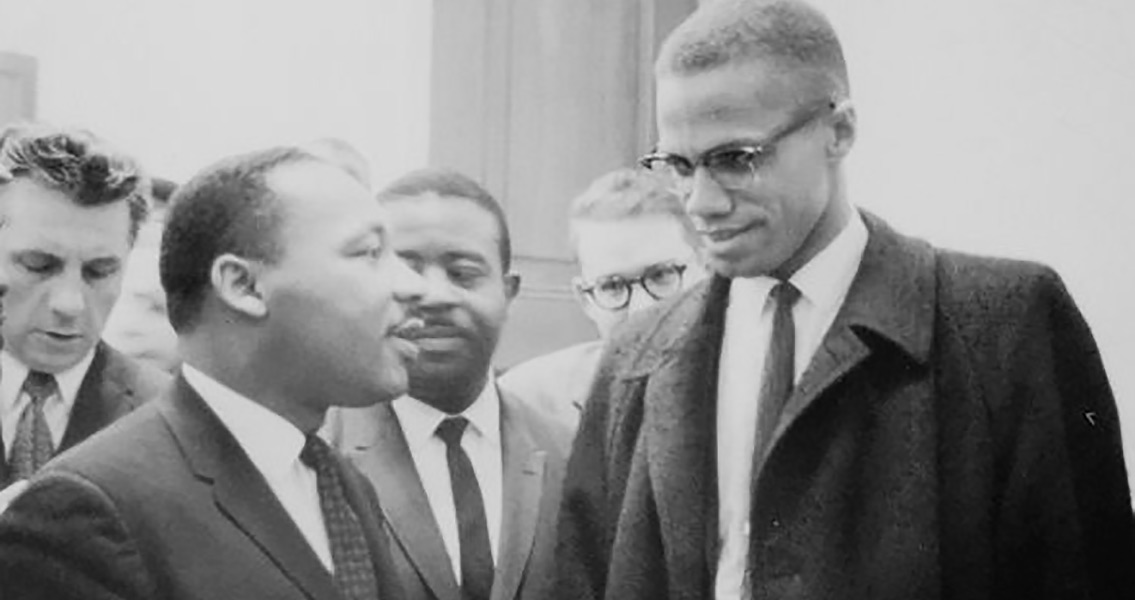<![CDATA[The 21st February marks fifty years since the assassination of Malcolm X. The activist for African-American rights had been speaking at the Audubon Ballroom in Manhattan when a group of gunmen from the Nation Of Islam opened fire. Malcolm was taken to the nearest hospital, but was pronounced dead within fifteen minutes of his arrival. Malcolm X was one of the most visible and divisive figures in US politics in the late 1950s and early 1960s. A staunch advocate for black liberation, equal rights and Islam, his beliefs. and more importantly, the means by which he felt they could be achieved, changed several times over the course of his life. From the moment he was born, in Nebraska in 1925, he seemed to be thrust into the volatile race divisions of the USA. His father, James Earl Little, was a Baptist preacher who advocated the Black Nationalist Ideals of Marcus Garvey. These controversial preachings led to threats from the Ku Klux Klan, forcing the family to move to Lansing, Michigan. Malcolm's father continued his sermons, and in 1931 was brutally murdered by the white supremacist Black Legion. In 1937, Malcolm was taken away from his family by welfare workers. He moved to Boston and descended into a life of criminality, eventually being sent to prison in 1946 for a burglary conviction. It was during his time in prison that he encountered the teaching of Elijah Muhammad, the leader of the Nation of Islam. Muhammad argued that it was impossible for black people to live with white, due to white people's devilish tendencies. Malcolm became convinced that it was the responsibility of black people to determine their own fate, and devoted his life to the Nation of Islam and ascetic study. Following his release from prison in the early 1950s, Malcolm became the minister of Temple No. 7 in Harlem. His reputation quickly grew beyond New York, gaining support among African- Americans, but also concerning the authorities with his advocating of militarism. Campaigning for civil rights at the same time as Martin Luther King, Malcolm X had a very different philosophy, calling for self defence and liberation through "any means necessary". In 1963, as his influence continued to grow, he was expelled from the Nation of Islam. Malcolm had claimed that the assassination of US President John Kennedy was a matter of "the chickens coming home to roost". Elijah Muhammad used the remarks as an excuse to remove a figure who was increasingly challenging his position as the head of the Nation of Islam. Following his separation from the Nation of Islam, Malcolm embarked on a pilgrimage to Mecca. The journey seemed to fundamentally change his world view, and his beliefs on how best to facilitate equal rights. Seeing in Mecca equality among Muslims from a variety of different backgrounds, he concluded that there were not inevitable conflicts between black and white communities. Instead of viewing white people themselves as the biggest threat to black, he realised the danger was only caused by the continuation of racist views in certain individuals. Malcolm started his own movement, the Organisation of African American Unity. The last years of his life saw him advocate a much more moderate campaign of civil rights, campaigning for unity and non-violent protest. Increasingly, he argued for a political solution to America's civil rights problem, criticising the inadequacies of the Republicans and Democrats, instead of pushing for confrontation. Often remembered as a militant, such a summary fails to do justice to the complex beliefs Malcolm X held, and the changes in philosophy that occurred during his life. He was inextricably linked to the complex race politics of the mid-twentieth century US, and his story highlights the drastic changes and varied interests which defined this period of history. ]]>
The Anniversary of Malcolm X's Assassination
